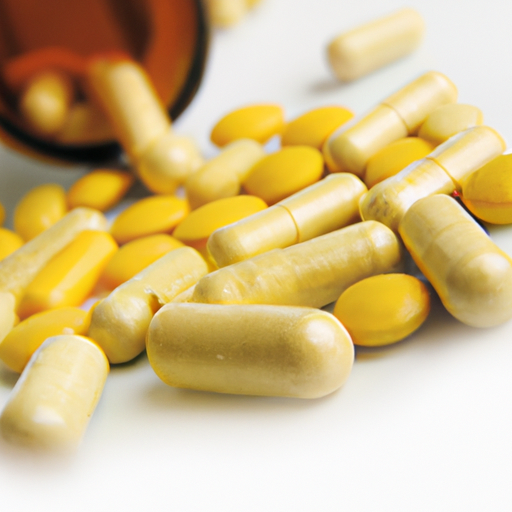Best Time Of Day To Take Berberine Supplements

The quest for optimal health often leads individuals down a path of dietary supplements, each promising a unique set of benefits. Among these, berberine, a natural compound found in several plants, has garnered significant attention for its potential to regulate blood sugar, improve cholesterol levels, and even aid in weight management. However, unlocking berberine’s full potential hinges on a crucial factor: timing. Determining the best time of day to take berberine supplements is not merely a matter of convenience, but a key element in maximizing its efficacy and minimizing potential side effects.
This article delves into the science-backed recommendations surrounding berberine supplementation timing. It examines the interplay between berberine's pharmacokinetic properties, dietary habits, and individual health conditions. The goal is to equip readers with the knowledge necessary to make informed decisions about incorporating berberine into their health regimens effectively and safely.
Understanding Berberine's Pharmacokinetics
Berberine's journey within the body significantly influences when it should be taken. Understanding its pharmacokinetics – how the body absorbs, distributes, metabolizes, and excretes a substance – is paramount.
Berberine is known for its relatively poor bioavailability. This means that a significant portion of the ingested dose is not absorbed into the bloodstream. Studies suggest that taking berberine with food can improve its absorption.
The Role of Food
Consuming berberine alongside a meal, particularly one containing fats, can enhance its absorption rate. The presence of food stimulates bile production, which, in turn, can improve the solubility and uptake of berberine in the intestinal tract.
Therefore, spacing out berberine doses throughout the day, taken with meals, is often recommended. This strategy aims to maintain a more consistent level of the compound in the bloodstream.
Dosage and Timing Recommendations
General recommendations often suggest taking berberine two to three times daily, with each dose ranging from 300 to 500 mg.
Ideally, these doses should be consumed with meals to optimize absorption and minimize potential gastrointestinal discomfort. This approach aligns with the understanding that food intake can significantly impact berberine's bioavailability.
Some practitioners suggest dividing the total daily dose into smaller, more frequent intervals. It helps to maintain a steadier concentration of berberine in the system throughout the day. This may be particularly beneficial for individuals seeking to manage blood sugar levels more effectively.
Specific Considerations for Blood Sugar Management
For individuals using berberine to help manage blood sugar, taking it before meals may be particularly advantageous. This timing allows berberine to exert its effects on glucose metabolism during the postprandial period – the period after eating when blood sugar levels tend to rise.
A study published in the journal Metabolism indicated that berberine taken before meals significantly reduced postprandial blood glucose spikes compared to a placebo. This finding underscores the importance of timing in maximizing berberine's blood sugar-regulating effects.
Potential Side Effects and Mitigation Strategies
While berberine is generally considered safe, some individuals may experience gastrointestinal side effects, such as nausea, diarrhea, or constipation. These side effects are often dose-dependent and can be mitigated by adjusting the timing and dosage.
Taking berberine with food, as mentioned earlier, can also help reduce the likelihood of these side effects. Starting with a lower dose and gradually increasing it over time can also allow the body to adjust to the supplement.
If gastrointestinal symptoms persist, consulting with a healthcare professional is crucial. They can help determine if berberine is the appropriate supplement and advise on the most suitable dosage and timing for individual needs.
Interactions with Medications and Other Supplements
Berberine can interact with certain medications, potentially altering their effectiveness or increasing the risk of side effects. It's particularly important to exercise caution when taking berberine alongside medications that affect blood sugar or liver function.
For example, berberine may enhance the effects of diabetes medications, potentially leading to hypoglycemia (low blood sugar). Individuals taking such medications should closely monitor their blood sugar levels and consult with their doctor before starting berberine supplementation.
Similarly, berberine can interact with certain supplements, such as milk thistle, which also affects liver function. Consulting with a healthcare professional or pharmacist is essential to identify potential interactions and ensure the safe use of berberine.
The Importance of Individualized Approaches
The optimal timing and dosage of berberine can vary significantly depending on individual factors, such as age, health status, and medication use. A one-size-fits-all approach is rarely appropriate.
Individuals with pre-existing medical conditions, such as diabetes, liver disease, or kidney disease, should consult with their healthcare provider before taking berberine. They can assess the potential benefits and risks based on their specific health profile.
Furthermore, paying attention to the body's response to berberine and adjusting the timing and dosage accordingly is crucial. Keeping a journal to track any changes in symptoms or side effects can be helpful in fine-tuning the supplementation regimen.
Looking Ahead: Future Research Directions
While current research provides valuable insights into the optimal timing of berberine supplementation, further studies are needed to refine these recommendations. Future research should focus on exploring the effects of different dietary patterns on berberine absorption.
More research is also needed to investigate the long-term effects of berberine supplementation on various health outcomes. It is crucial to understand the optimal timing and dosage for different populations and health conditions.
By continuing to explore the nuances of berberine's pharmacokinetics and its interactions with the body, researchers can pave the way for more personalized and effective supplementation strategies. This will enable individuals to harness the full potential of berberine for improved health and well-being.
In conclusion, the best time of day to take berberine supplements is generally with meals, spaced throughout the day. This approach optimizes absorption, minimizes side effects, and aligns with berberine's mechanism of action. However, individual needs and circumstances may warrant adjustments to this general recommendation, emphasizing the importance of consulting with a healthcare professional. As research continues to unravel the complexities of berberine, the future promises even more refined and personalized approaches to supplementation, maximizing its benefits while minimizing potential risks.


















